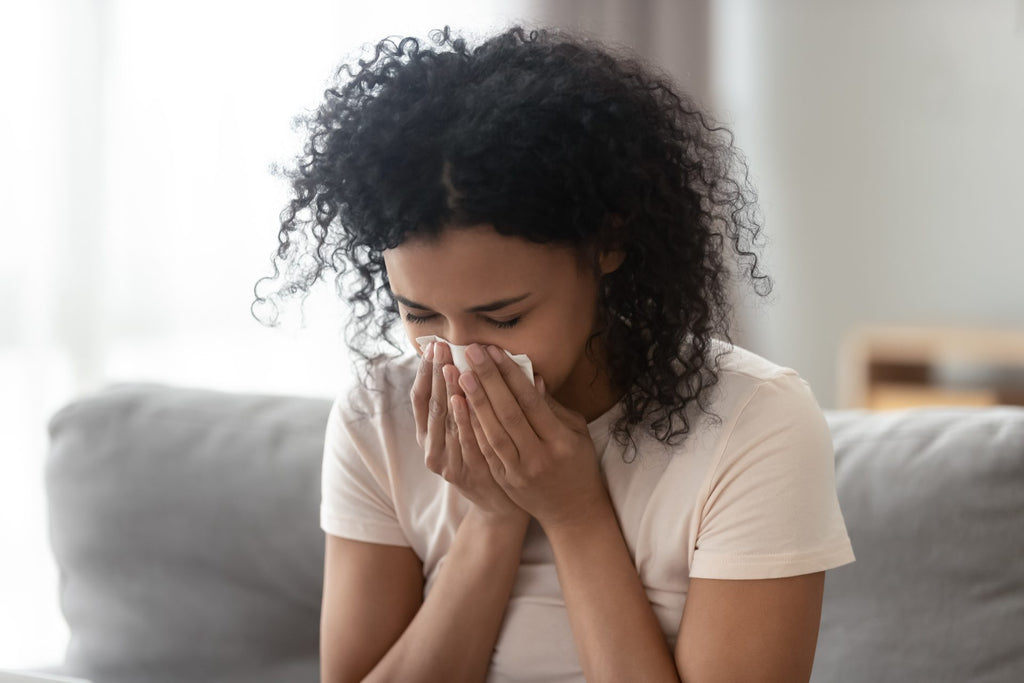Why Do Viruses Affect Us All Differently?

If there’s anything we’ve learned from past viruses and the current coronavirus pandemic, it’s that viruses tend to affect us all differently.
Why do some people experience severe symptoms, while others go through entire flu seasons with only a slight sniffle?
As it turns out, there are a few specific reasons why viruses may affect everyone differently. Let’s take a deeper look.
How Past Exposure to Viruses Can Affect Us

A recent study aimed to solve the age-old question: Why does the same strain of the flu virus affect people with varying degrees of severity?
Researchers believe that part of the reason flu viruses affect us all differently is linked to the very first flu strain we experience as a child.
The team that led the recent study included both UCLA and Arizona scientists. The researchers discovered that exposure to flu viruses as a child offers some degree of protection against other related influenza viruses throughout the rest of their lives. They refer to the phenomenon of one’s past virus exposure influencing their future response as “immunological imprinting.”
The two types of influenza viruses responsible for the majority of flu outbreaks over the past few decades are known as H1N1 and H3N2. H1N1 typically affects younger to middle-aged adults, while H3N2 more commonly affects a high-risk older population of adults.
In the study, researchers found that individuals who were first exposed to H1N1 in childhood were less likely to experience extreme symptoms of the virus later in life than those first exposed to H3N2. Those exposed to H3N2 in childhood also had increased protection from H3N2 later in life.
According to the lead author of the study, UCLA professor of ecology and evolutionary biology James Lloyd-Smith, “While infection with one does result in the immune system being better prepared to fight a future infection from the other, protection against future infections is much stronger when one is exposed to strains from the same group one has battled before.”
Immunological imprinting is the premise behind the flu shot. Getting the flu vaccine provides controlled exposure to the virus in hopes that symptoms may be less severe if you come in contact with someone who has the flu.
Your body “remembers” when it has fought off a particular strain of a virus before. If you’ve been exposed before, you’ll have a stronger defense mechanism in place if you’re exposed again.
There’s still much to be learned about whether or not past exposure to coronaviruses can influence your body’s’ response to Covid-19, but this might, in part, explain the inconsistency of reported symptoms during this pandemic.
How Immune Health is Linked to the Severity of Virus Symptoms
While exposure to a particular type of virus is one reason why either the flu or the new coronavirus might affect you differently than it does the next person, the strength of your immune system is also an important factor that determines just how bad your symptoms may be.
The immune system is made up of a vast network of cells and organs that work together to keep us healthy and defend against viruses and bacteria.

One of the factors that determines how a virus will affect us is the health of our immune system. Ever notice how the flu tends to be much worse when you’re run down, stressed out, not eating a healthy diet or partying a bit more that you know you should?
All of these circumstances, or certain pre-existing conditions, can throw our immune system off balance, making it difficult for our body to properly respond once we’ve been exposed to a virus. As we age, the immune system naturally begins to slow down, which could be one reason why some viruses tend to affect the elderly population differently compared to younger people.
When the cells that make up your immune system don’t have the energy they need, our natural immune response becomes weakened and we tend to experience more severe symptoms when we come down with a nasty bug.
The good news? You can start taking steps to naturally boost your immune system! Some simple ways to do so include:
- Engage in regular exercise.
- Regularly get a good night’s sleep.
- Eat a healthy diet full of immune boosting foods and drink plenty of water.
- Use various herbs known to strengthen immunity.
How Cell Permeability is Linked to Viruses’ Ability to Spread
This last point is where things get a little complicated.
Viruses cannot replicate, or even cause harm, outside of a cell. They are what is known as obligate intracellular parasites, which means in order to function, they need a cell host. Different viruses have different methods of entering a cell.
Viruses are usually portrayed as being covered in spikes. Think of these spikes as keys. In order for a virus to penetrate the plasma membrane and get inside a cell, it usually either needs a particular receptor that will act as a keyhole or an endosome (a sort of Trojan Horse that tricks the cell into accepting the virus).
Antivirals often work to inhibit this process or to prevent the virus from undergoing a similar process to free itself from the infected cell and go on to infect other cells. If a certain receptor is naturally less prevalent in an individual, or if that receptor has a slight genetic difference, the virus may find itself unable to spread.
The coronavirus, in particular, has shown a binding affinity with what’s known as the ACE-2 receptor. Graham Roberts, a pediatric researcher in the University of South Hampton, believes the potential absence of this receptor in most children’s lower respiratory systems may be why fewer children seem to develop severe Covid-19 symptoms than adults.
That said, it is still too early to tell who is and isn’t at risk of developing life-threatening symptoms from the coronavirus. There are many more studies to be done on this subject.
Viruses are complex. We don’t yet know all the reasons influenza strains or the new coronavirus strain carry such a wide range of effects—why some people end up in the ICU and some show no symptoms at all. But we do know that social distancing (limiting potential exposure) and supporting immune health are two important measures we’re taking to keep ourselves and our families healthy during this pandemic.
Thanks for reading! To show how much we appreciate you, we’re going to give you 16% off your next order. Just use code READER16 at checkout!

Newsletter signup
Join the Joy Organics Family
Sign up and get updates on new products, as well as special coupons and discounts.
testimonials
What Our Clients Say
“This is a company that truly cares about its customers and providing the best CBD products currently available on the market.”











Join In On The Conversation
Your email address will not be published. Required fields are marked *
Comments will be approved before showing up.